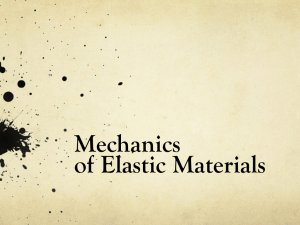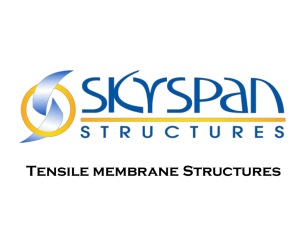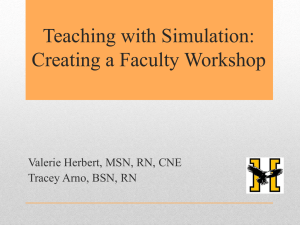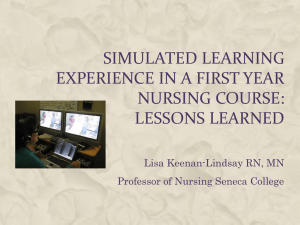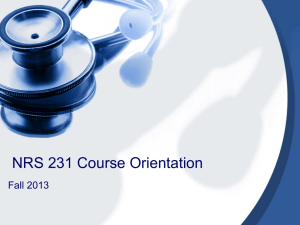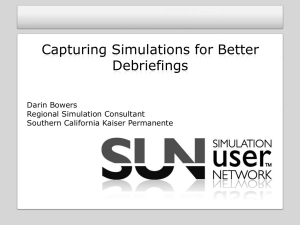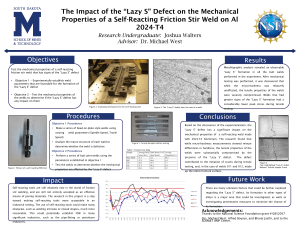Introduction
advertisement
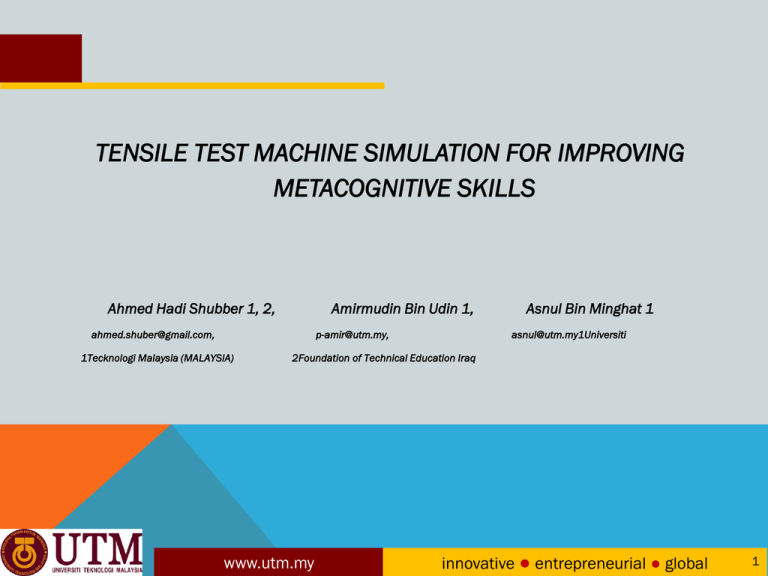
TENSILE TEST MACHINE SIMULATION FOR IMPROVING METACOGNITIVE SKILLS Ahmed Hadi Shubber 1, 2, Amirmudin Bin Udin 1, ahmed.shuber@gmail.com, p-amir@utm.my, 1Tecknologi Malaysia (MALAYSIA) Asnul Bin Minghat 1 asnul@utm.my1Universiti 2Foundation of Technical Education Iraq www.utm.my innovative ● entrepreneurial ● global 1 OUTLINE -Introduction -Statement of Problem -Objectives -Significance of the Research -Research Methodology -Simulation Development and Designing -Results www.utm.my innovative ● entrepreneurial ● global 2 INTRODUCTION Computer simulations programs are based on model to mimic a system as close as reality and often used to bridge the gap between theory and experiment. Using these programs learner can design experiments by changing the values of input variables as precisely as possible to observe the subsequent changes in the output values to establish a relation between them [1]. This kind of learning process is often referred as inductive learning [2] which strongly resemblances to scientific researching, discovery and learning. Lately, inductive learning using computer simulations generated renewed interests [3] www.utm.my innovative ● entrepreneurial ● global 3 STATEMENT OF PROBLEM Ministry of Higher Education of Iraq, (2012), and Ministry of Planning Republic of Iraq, ( 2010) reported that: - Most students and even graduates do not possess the ability to analytically address problems when they are confronted by such problems. - The lack of an enough chance for students to develop their practical skills and work by themselves. - Iraq needs modern educational techniques for the development of education generally and engineering education in particular www.utm.my innovative ● entrepreneurial ● global 4 OBJECTIVES (a) determine the characteristics of simulation design fulfilling the requirement of Engineering Learning. (b) design, develop and evaluate the Tensile Machine Simulation (TMS). (c) determine the influences of TMS on metacognitive skills. www.utm.my innovative ● entrepreneurial ● global 5 SIGNIFICANCE OF THE RESEARCH The significance of this study cannot be over-emphasized. Below are the significance of this research work: (a) The engineering education experts, teachers and specialists can use the developed model to design educational curricula and methods for solving engineering problems metacognitively. (b) The proposed mode can also help teachers in planning, monitoring and evaluating the metacognitive status of their students. (c) The country can save the cost of employing expatriate by grooming their home-based metacognitive personnel. (d) It will also help a country promote sustainable development since maintenance culture spans through metacognitive thinking and problem solving approach www.utm.my innovative ● entrepreneurial ● global 6 RESEARCH METHODOLOGY www.utm.my innovative ● entrepreneurial ● global 7 Simulation Development and Designing Block diagram for the simulation development processes www.utm.my innovative ● entrepreneurial ● global 8 HOW CAN USE TENSILE TEST SIMULATION ? Screen1 1. ABOUT TENSILE TEST: Review the information related of Tensile Test. 2. ABOUT SIMULATION: Review the information related about How can use simulation? 3. TEST STEPS: Review the information related of test step. 4. SIMULATION TEST: Move to the next screen to use simulation for Tensile Test. 5. EXIT: End of program. HOW CAN USE TENSILE TEST SIMULATION ? 1 2 Screen2 3 4 6 1. Aluminum Al: Use Aluminum specimen and Next screen. 2. Steel: Use Steel specimen and move to the next screen. 3. Brass: Use Brass specimen and move to the next screen. 4. M-Steel: Use M-Steel specimen and move to the next screen. 5. EXIT: End of program. 6. Back: Back to the previous screen. 5 HOW CAN USE TENSILE TEST SIMULATION ? 3 4 1 5 6 Screen3 8 9 2 11 7 10 1. Image: To explain the Tensile Test Machine 2. Key (Enter) in (Initial) group: To show value of initial diameter (mm) and parallel length (mm) to the specimen. 3. Images in (Measurement Data before and after Test) group: To show how can measure specimen before and after test? 4. Input text (Elongation (mm)): To Input the elongation value. HOW CAN USE TENSILE TEST SIMULATION ? 3 4 1 5 6 Screen3 8 9 2 11 7 10 9. Calculate Stress and Strain: Move to the next screen to calculate Stress, Strain and other. 10. EXIT: End of program. 11. Back: Back to the previous screen. HOW CAN USE TENSILE TEST SIMULATION ? 14 1 Screen4 3 2 4 6 5 8 7 9 10 11 13 15 12 16 17 1. (For Information) group: To show previous data and equations like equation of (stress, strain, Initial Cross-Sectional Area ...etc.). 2. Input text in (Initial Cross-Sectional Area, A0 (m2)) group: To input initial cross-sectional area value after manual calculation. 3. Key (Enter) in (Initial Cross-Sectional Area, A0 (m2)) group: To show initial cross-sectional area value is true or false. HOW CAN USE TENSILE TEST SIMULATION ? 14 1 Screen4 3 2 4 6 5 7 8 9 10 11 13 15 12 16 17 4. Input text in (After Fracture Cross-Sectional Area, A1 (m2)) group: To input after fracture crosssectional area value after manual calculation. 5. Key (Enter) in (After Fracture Cross-Sectional Area, A1 (m2)) group: To show after fracture crosssectional area value is true or false. 6. Input text in (Based on the percentage of Elongation, %EL) group: To input based on the percentage of elongation value after manual calculation. HOW CAN USE TENSILE TEST SIMULATION ? 14 1 Screen4 3 2 4 6 5 8 7 9 10 11 13 15 12 16 17 7. Key (Enter) in (Based on the percentage of Elongation, %EL) group: To show based on the percentage of elongation value is true or false. 8. Input text in (Based on the percentage of Area Reduction, %AR) group: To input based on the percentage of area reduction value after manual calculation. 9. Key (Enter) in (Based on the percentage of Area Reduction, %AR) group: To show based on the percentage of area reduction value is true or false. HOW CAN USE TENSILE TEST SIMULATION ? 14 1 Screen4 3 2 4 6 5 8 7 9 10 11 13 15 12 16 17 10. Elongation and Load label in (Stress and Strain) group: To show elongation and load value. 11. Input text (Strain (µ)) in (Stress and Strain) group: To Input the strain value after manual calculation. 12. Input text (Stress (MPa)) in (Stress and Strain) group: To Input the stress value after manual calculation. 13. Key (Enter) in (Stress and Strain) group: To show stress and strain value are true or false and move to next record. HOW CAN USE TENSILE TEST SIMULATION ? 14 1 Screen4 3 2 4 6 5 8 7 9 10 11 13 15 12 16 17 14. Help label: Click to show result for one record. 15. Show Data and Graph: Move to the next screen to show data, graph, and calculate modulus of elasticity, yield point …etc. 16. EXIT: End of program. 17. Back: Back to the previous screen. HOW CAN USE TENSILE TEST SIMULATION ? 1 5 6 7 4 8 9 Screen5 10 11 14 2 3 12 13 1. Elongation and Load Chart: To show Elongation – Load graph. 2. Strain and Stress Chart: To show Strain and Stress graph. 3. Area Chart: To show graph and data point with moving mouse on the curve. 4. Information Text: To show value of current point. 5. Information Text: Contains equation of upper yield point, lower yield point, ultimate tensile stress, Fracture stress, and Modulus of Elasticity. 6. Data Table: To show all data for all points. HOW CAN USE TENSILE TEST SIMULATION ? 1 5 6 7 4 8 9 Screen5 10 11 14 2 7. 3 12 13 Input text (Upper Yield Point (MPa)) in (Calculate) group: To input upper yield stress value after manual calculation or on the chart. 8. Input text (Lower Yield Point (MPa)) in (Calculate) group: To input lower yield stress value after manual calculation or on the chart. 9. Input text (Ultimate Tensile Stress (MPa)) in (Calculate) group: To input ultimate tensile stress value after manual calculation or on the chart. HOW CAN USE TENSILE TEST SIMULATION ? 1 5 6 7 4 8 9 Screen5 10 11 14 2 3 12 13 10. Input text (Fracture Stress (MPa)) in (Calculate) group: To input Fracture stress value after manual calculation or on the chart. 11. Input text (Modulus of Elasticity (GPa)) in (Calculate) group: To input Modulus of Elasticity value after manual calculation and on the chart. 12. CHECK OF RESULTS: To show upper yield point, lower yield point, ultimate tensile stress, Fracture stress, and Modulus of Elasticity value are true or false. 13. EXIT: End of program. 14. Back: Back to the previous screen. RESULTS Independent Samples Test for metacognitive skills. Groups Experimental group N Mean T 38 7.79 7.832 Self-planning Control group 37 5.51 Experimental group 38 7.82 Control group 37 5.51 Experimental group 38 7.82 Control group 37 5.49 Experimental group 38 7.84 Control group 37 5.49 Self-monitoring Self-modification Self-evaluation 7.875 7.968 7.945 www.utm.my Sig. (2-taile) .000 .000 .000 .000 innovative ● entrepreneurial ● global 21 www.utm.my innovative ● entrepreneurial ● global 22
